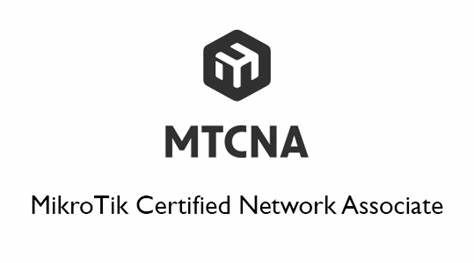Navigating the MTCNA Exam: An Overview of Objectives and Preparation

Embarking on the journey to become a MikroTik Certified Network Associate (MTCNA) can be an exciting yet challenging endeavor. The MTCNA certification serves as a foundational credential for individuals seeking to establish their expertise in MikroTik RouterOS software and basic networking concepts. In this blog post, we'll provide an overview of the MTCNA exam objectives and offer insights into how to best prepare for success.
Understanding the MTCNA Exam
The MTCNA exam is designed to evaluate an individual's knowledge and proficiency in the following key areas:
- MikroTik RouterOS Basics: Candidates are expected to demonstrate a thorough understanding of MikroTik RouterOS software, including its features, capabilities, and components. This includes knowledge of RouterOS installation, configuration, and management.
- Networking Fundamentals: The exam covers fundamental networking concepts, such as the OSI model, TCP/IP protocol suite, Ethernet and LAN setup, IP addressing, and subnetting. Candidates should be familiar with common networking protocols and technologies.
- Routing and Switching: Candidates are tested on their knowledge of routing and switching concepts, including static and dynamic routing protocols (such as RIP and OSPF), VLANs, trunking, and inter-VLAN routing. This includes configuring and managing routing and switching functionalities using MikroTik RouterOS.
- Wireless Networking: The exam includes topics related to wireless networking, such as configuring wireless interfaces, access points, wireless security (WPA, WPA2), and point-to-point wireless links. Candidates should be proficient in setting up and managing wireless networks using MikroTik devices.
- Network Services: Candidates are expected to have a good understanding of network services, including DHCP (Dynamic Host Configuration Protocol), DNS (Domain Name System), NAT (Network Address Translation), and firewall configuration. This includes configuring and managing network services using MikroTik RouterOS.
- Network Security: The exam covers basic network security concepts, such as access control lists (ACLs), firewall rules, and secure management practices. Candidates should be able to implement security measures to protect network infrastructure and data.
How to Prepare for the MTCNA Exam
Preparing for the MTCNA exam requires a combination of study, hands-on practice, and exam preparation strategies. Here are some tips to help you prepare effectively:
- Attend Training Courses: Consider attending an official MikroTik training course led by certified instructors. These courses provide comprehensive coverage of exam topics and include hands-on labs and practical exercises.
- Self-Study Resources: Utilize study guides, online tutorials, and official MikroTik documentation to supplement your learning. These resources offer valuable insights into exam objectives and provide additional practice exercises.
- Hands-On Practice: Set up a lab environment using MikroTik devices to gain practical experience with configuring and managing network setups. Hands-on practice is essential for reinforcing theoretical knowledge and building confidence.
- Take Practice Exams: Use practice exams to assess your readiness and identify areas for improvement. Practice exams simulate the format and structure of the actual MTCNA exam, helping you familiarize yourself with the types of questions you may encounter.
- Review Exam Objectives: Familiarize yourself with the exam objectives and ensure that you have a solid understanding of each topic. Focus your study efforts on areas where you feel less confident and allocate sufficient time to review and reinforce key concepts.
Conclusion
The MTCNA exam serves as a comprehensive assessment of an individual's knowledge and proficiency in MikroTik RouterOS software and basic networking concepts. By understanding the exam objectives and following a structured preparation plan, you can increase your chances of success and achieve MTCNA certification. Remember to approach the exam with confidence, and trust in your preparation efforts to guide you towards your goal. Good luck on your journey to becoming a MikroTik Certified Network Associate!
